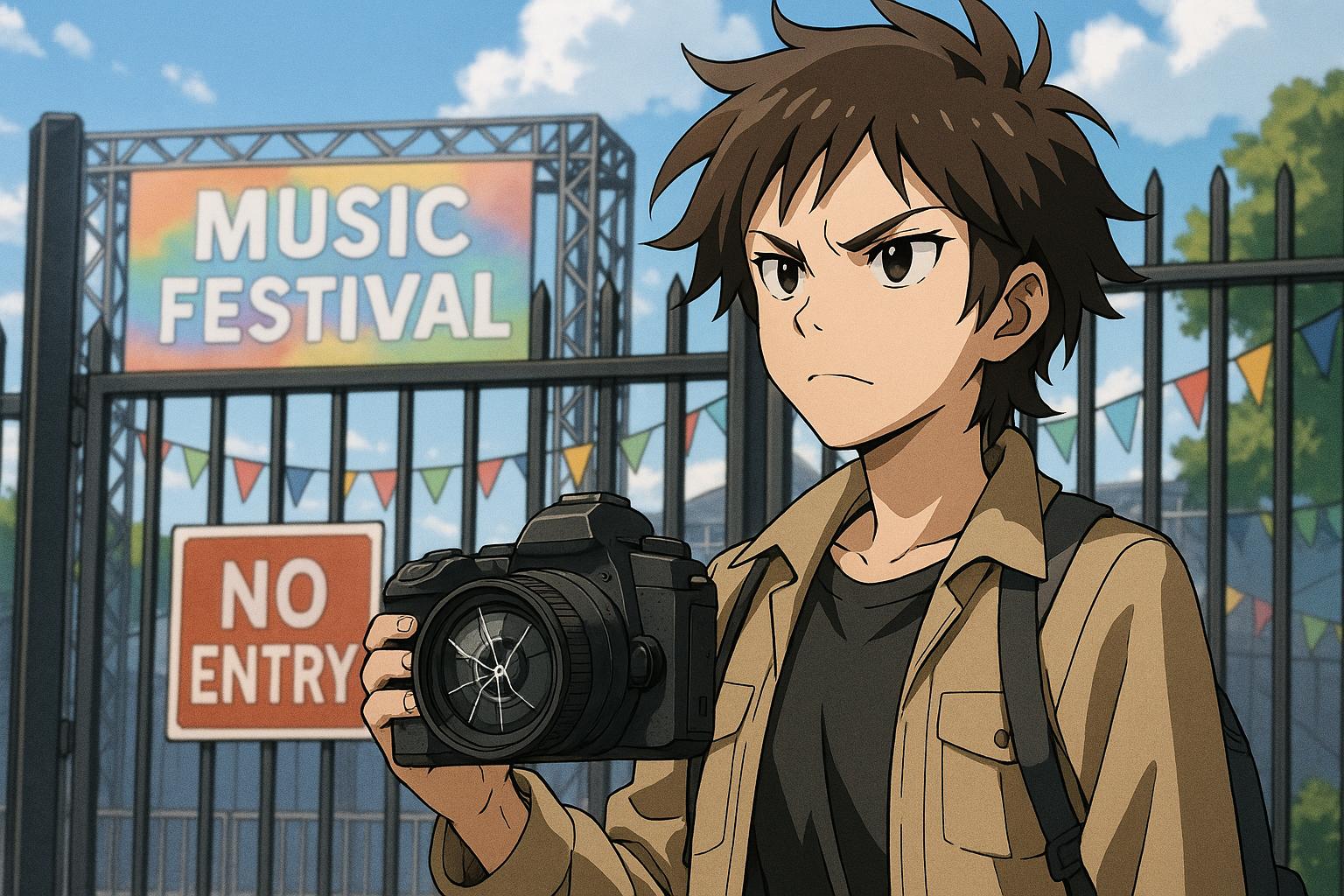The recent announcement by Mighty Hoopla, an esteemed music festival held annually in Brockwell Park, has set off alarm bells in the UK’s freelance creative community. The festival, which boasts a vibrant celebration of music and culture, has decided to prohibit all independent and freelance photographers from covering its upcoming events. This abrupt shift not only threatens the livelihoods of freelance creatives but also raises significant questions about corporate control and the future of artistic expression in an increasingly consolidated festival landscape.
Festival representative Simon Jones confirmed the ban, stating, “All photography is being done in-house this year, I’m afraid, so we’re not allocating any photo passes.” This decision marks a departure from previous years where freelancers contributed unique perspectives and diverse narratives through their lenses. The move appears to align with changing ownership dynamics; Mighty Hoopla is now part-owned by KKR, a private equity giant, following a €1.3 billion deal involving its parent company, Superstruct Entertainment. Critics suggest this corporate restructuring is indicative of a broader trend towards centralisation, as independent festivals face pressure from large investment firms to control narrative and brand messaging more aggressively.
This shift raises concerns about the implications for media freedom. Freelance journalists and independent media outlets often provide integral coverage of cultural events, capturing stories that resonate with local audiences. By centralising photography, Mighty Hoopla risks stifling the rich tapestry of voices that contribute to its narrative. The community-based journalism provided by outlets like Brixton Buzz may be particularly affected. As they lamented, “It’s truly disappointing to witness a festival that touts itself as fun, open, and inclusive now behaving like controlling, corporate overlords.”
Moreover, the ban on freelancers presents a stark economic threat. Many photographers rely on music festivals as both a source of income and a vital means to build portfolios. Luke Dyson, a freelance photographer with a history of working at Mighty Hoopla, exemplifies those affected. Although he remains engaged with photography opportunities, this decision represents a significant loss for freelancers who now face an increasingly restricted market.
The consolidation seen in the festival industry reflects a broader trend where small promoters get absorbed by major festival operators, driven largely by the profit motives of private equity firms. Such firms, with their substantial assets, often seek efficiencies that inherently marginalise new entrants or independent talent. Indeed, industry observers and journalists have noted that this trend towards "in-house" solutions not only threatens financial viability for freelancers but may also undermine the diversity of media coverage around cultural events.
The implications extend beyond economic concerns, as artistic freedom and independent representation are increasingly at stake. The announcement from Mighty Hoopla comes amidst wider dialogues about corporate ethics and their intersection with artistic expression. Recently, for instance, the South Asian collective Daytimers withdrew from the festival due to Superstruct Entertainment’s association with KKR, highlighting the growing scrutiny on firms perceived as complicit in controversial projects.
As the festival gears up for its next iteration in 2025—boasting a line-up of prominent artists and expected to attract around 60,000 attendees—the tool of media control has manifested not just in the limits placed on freelancers but also in the overarching messaging strategy of the festival. The Independent, for example, is set to return as the festival’s exclusive global news partner, further consolidating media narrative under a corporate umbrella. Roisin O’Connor, Music Editor at The Independent, expressed enthusiasm for the partnership, underscoring the continual trend of major media entities aligning with large corporate festivals.
Ultimately, the Mighty Hoopla ban serves as a troubling reminder of the tensions between profit-driven corporate interests and the independent creative spirit. As the repercussions of such decisions ripple through the freelance community, it remains to be seen whether the industry will rally against a future where restrictions on freelance opportunities become the norm. The call for a more inclusive approach to media representation, and an awareness of ethical implications surrounding corporate ownership, has never been more critical for preserving the integrity of creative expression.
Reference Map:
- Paragraph 1 – [1], [2]
- Paragraph 2 – [1], [3]
- Paragraph 3 – [1], [4]
- Paragraph 4 – [5]
- Paragraph 5 – [6]
- Paragraph 6 – [7]
Source: Noah Wire Services
